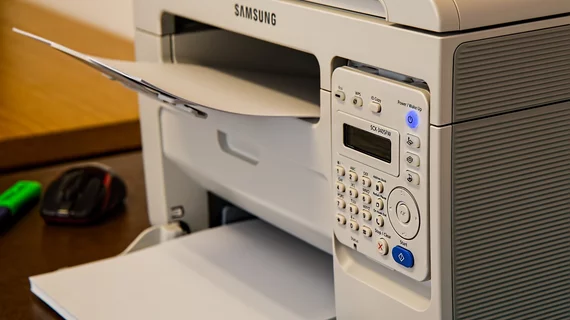Healthcare organizations still rely on old technology
An overwhelming 89% of the healthcare industry is still reliant on using fax machines as part of its communication, according to a survey from TigerConnect, a healthcare communication platform.
Another 39% of respondents said they use pagers among some department or roles or across their organization. More than half––55%––of healthcare organizations believe the industry is behind or very behind in adopting modern communication technology compared to other industries.
The findings underscore that the healthcare system overall uses outdated and fragmented communications––and the lack of modern technology comes at a cost. The survey, described in TigerConnect’s State of Healthcare Communications report, queried nearly 200 respondents who work in the healthcare industry, including 22% who were C suite participants, 19% IT professionals, 18% administrative staff, 11% operations and 2% other.
The report comes at a time when CMS is working to improve interoperability across the healthcare system to allow more seamless care coordination and patient transitions across providers.
A significant number of respondents––39%––said it is difficult or very difficult to communicate with one or more groups of care members. In addition, poor communication contributes to throughput issues in the care continuum, including causing delays in moving patients through the system. Delayed discharge was the most problematic cause, followed by consult delays and emergency department wait times.
However, not all healthcare workers believe communication challenges impact patients. In fact, non-clinical staff are 68% less likely to say these disconnects impacts patients daily, according to the report.
Patients do notice, and 74% of U.S. adults who spent time in a hospital in the past two years because they or a family member were admitted for at least one night said they were frustrated by one or more inefficiencies. Further, how patients want to communicate is mismatched. Only 51% of healthcare organizations said they use patient portals to communicate with patients, and 20% of patients said they prefer this method of communication.
See the full report here.

